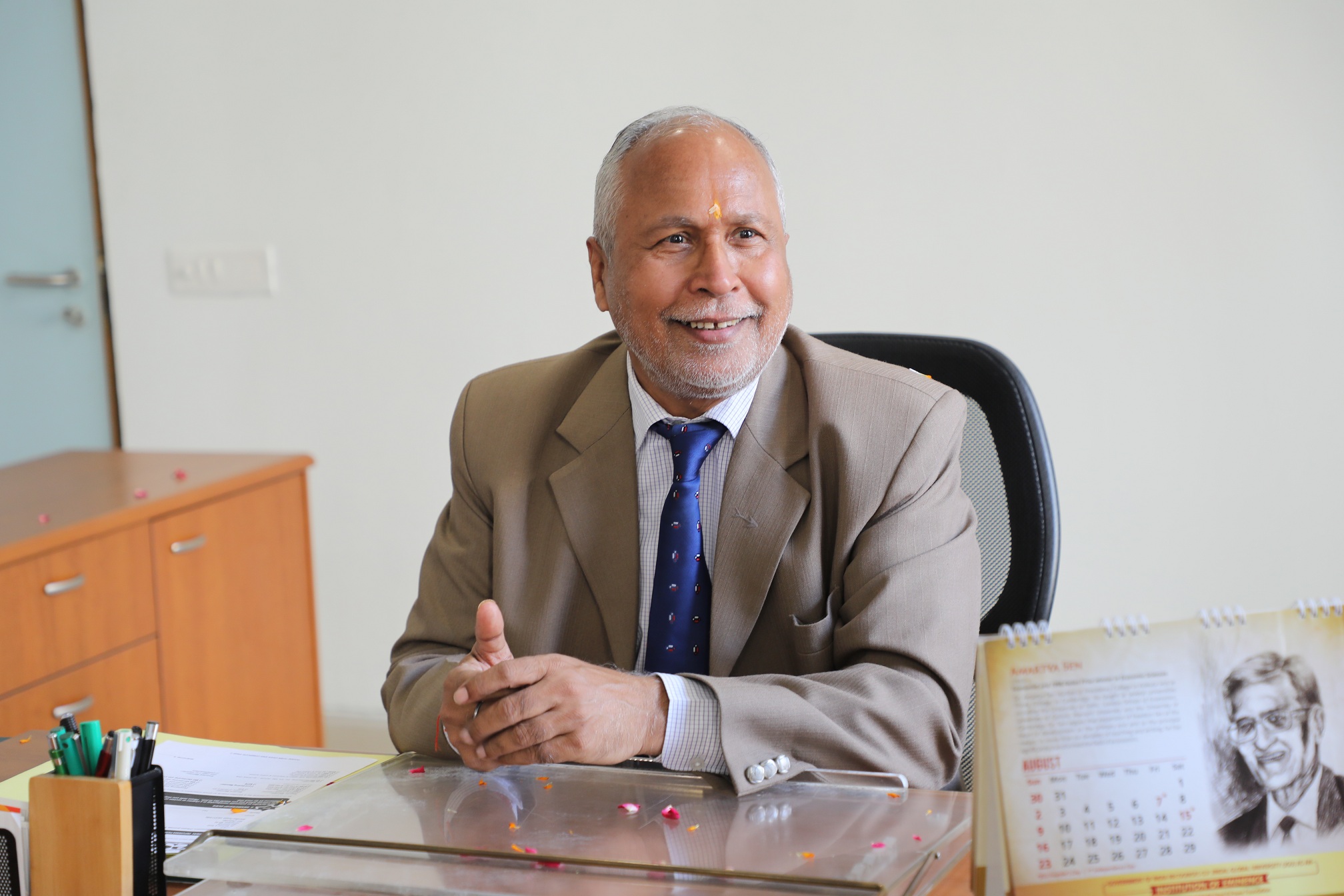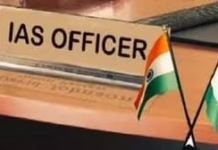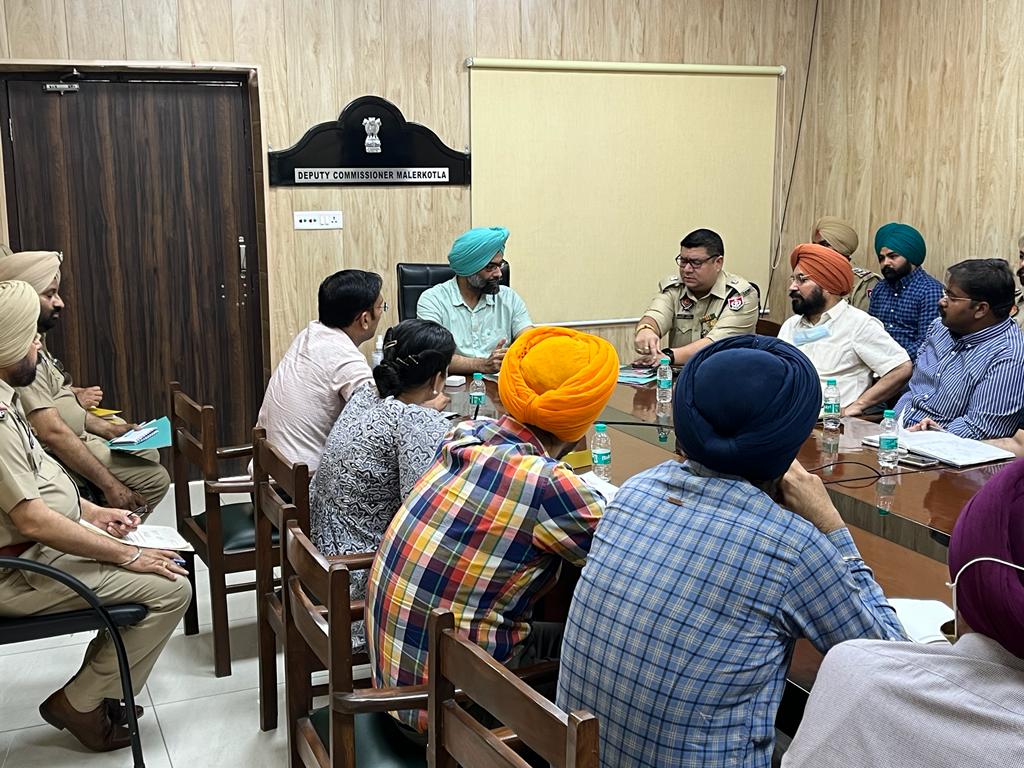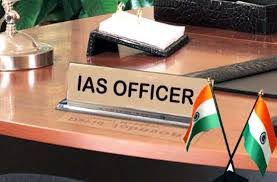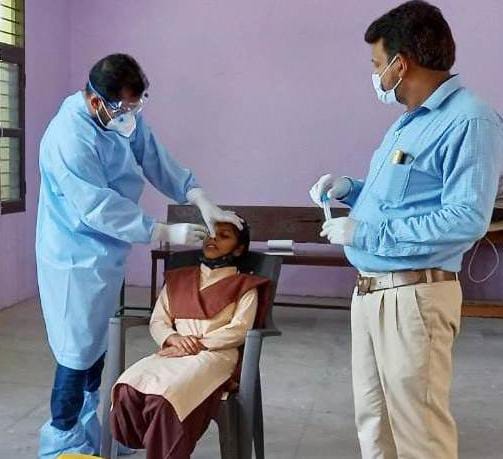NEP-2020 would fulfill the Prime Minister’s vision of Atma Nirbhar Bharat: Prof. Tiwari
Kanwar Inder Singh/ royalpatiala.in
Dr. APJ Abdul Kalam, former President of India, once opined that the aim of education is to build character, cultivate human values, develop scientific attitude with spiritual foundation, build confidence to face uncertain future, and to develop a sense of dignity, self-respect, and self-reliance. Prof. Raghavendra P. Tiwari, the Vice Chancellor of Central University of Punjab quoted the above thoughts of Dr. APJ Abdul Kalam, former President of India, and said that India’s learning system needed urgent reforms to inculcate these attributes in our youth and to develop global competencies to make them socially and economically relevant and finally, to capitalize on the geographic dividend. For this to happen, education system should be able to train human agency with quality nutrients to the body, mind and soul and should be able to promote the spirit of universal brotherhood and to enrich other aspects of human agency for taking civilizational discourse to higher pedestals. It is in this context that all transformational reforms enshrined in National Education Policy (NEP-2020), announced by the Government of India a year ago on 29th July, 2020, becomes all the more important to implement with. NEP-2020 is in fact, not merely a document, but commitment on the part of Government of India for nation building through reformed education ecosystem.
While giving his views on NEP-2020, Prof. Raghavendra Prasad Tiwari stated that the student centric NEP-2020 provides for creating lifelong learning knowledge society based on the premise of equal, affordable and wider learning opportunities. Academic Bank of Credits (ABC) will enable students to opt for diverse courses and institutions, through digitally storing the academic credits earned from recognized institutions and facilitate the award of degrees upon earning and accumulating credits required for completion of the program. Multiple Entry and Multiple Exit options will meet learning needs of diverse group of learners. Multidisciplinary curricular framework with strong skill development components will provide an opportunity for contextualized holistic rather than compartmentalized and decontextualized learning eco-system. In order to make learning joyful, and to develop higher order thinking capabilities, an emphasis has been laid on experiential learning pedagogies, viz., discussion/debate/disputation, demonstration, activity, project/dissertation/internship/case study and excursion based collaborative learning, and flip- and other modes of blended pedagogical approach. Graduate Attributes (GA)/learning outcomes will ensure qualities, skills and understandings that students need to develop while pursuing studies for certification of the degrees. These attributes will help develop competencies beyond the scope of textbooks and class-rooms. These will empower the graduates to become globalised citizens, and effective members of the knowledge society capable of improving the socio-economic conditions of the nation. The policy also emphasises on developing appropriate assessment tools for measuring the learning outcomes. Through National Language Translation Mission envisaged for knowledge sharing between Indian languages, the governance-and-policy related knowledge, as well as the traditional knowledge preserved in various languages, will be made available on the internet in major Indian Languages. This will certainly promote the sense of nationalism.
“Transformational reforms envisioned in NEP-2020 cannot be implemented without the use of technology. Teachers and students alike should be empowered to use technology in teaching-learning. For ushering in the era of trans-disciplinarity, paradigm cultural and moral shift is needed. Enhanced interaction amongst academia, industry and labs by National Research Foundation is necessary. Institutional thrust areas of research will now revolve around SDGs and local and regional needs for promoting ‘Vocal for Local’ concept”, Prof. Raghavendra P. Tiwari
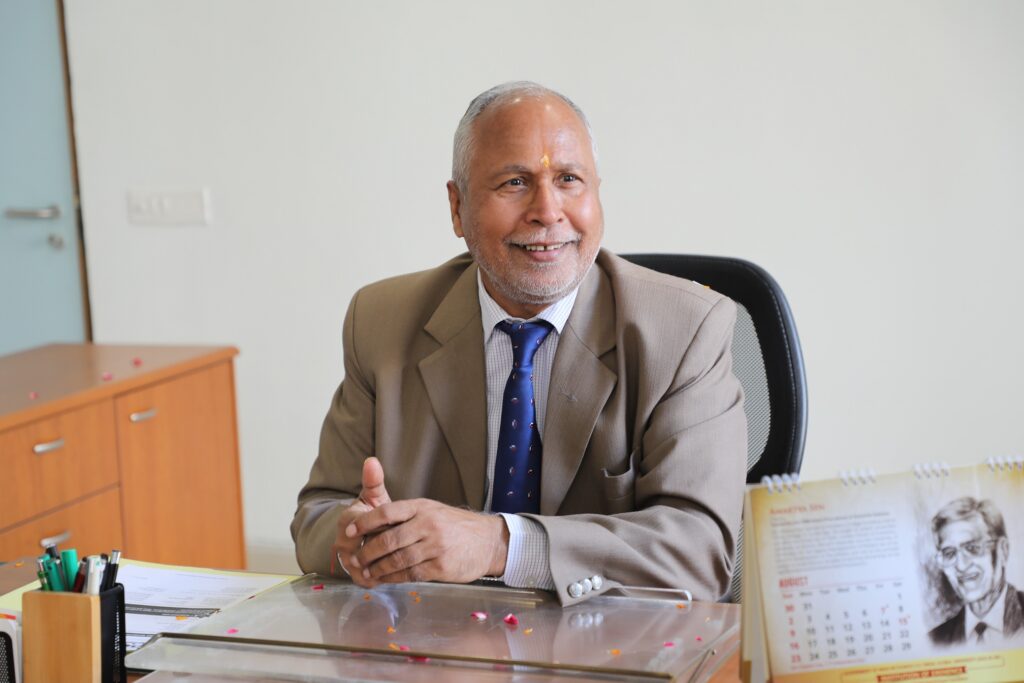
He stated that all these make NEP-2020 cable enough to inculcate entrepreneurial and agile thinking, adaptive leadership styles, resilience, interpersonal and communication skills, critical thinking, problem solving, digital dexterity and global operating skills and adapt them to real life scenarios as it emphasises on real life-long learning and on how to learn rather than on what to learn- necessary attribute of learning in globalised environment.
Prof. Tiwari emphasized that tight but light, dynamic and flexible regulatory regime, and facilitative umbrella implementation plan is the need of the hour for translating NEP-2020 to the ground realities. Prime Minister Office, Ministry of Education and University Grants Commission have really burnt mid-night oil for taking the NEP-2020 to the door steps of the stake-holder including civil society through several rounds of national workshops. Ministry of Education and UGC have made sincere efforts in drawing detailed implementation plan in respect of nine key-areas of the policy, viz., multidisciplinary and holistic education; equity and inclusion in higher education; research, innovations and rankings; global outreach of higher education; motivated, energised and capable faculty; integrated higher education system; governance and regulation; promotion of Indian knowledge system, languages, culture and values; and technology use and integration. In my considered view, time is ripe for implementation of NEP. Multidisciplinary learning outcome based curricular framework and Academic Bank of Credits, in my opinion are the doable from the academic session 2021-22. Owing to corona pandemic, however, implementation may be adversely affected.
Prof. Tiwari also on the importance of Teachers’ Role in the implementation of NEP-2020. In order to successfully implement it, they must be capable enough to adapt and embrace the evolving discourse of education. They should be able to infuse course contents with newer and refreshing ideas, should provide enough time for learners beyond the classroom, engage them in meaningful discourses concerning all aspects of education and help them in finding solutions. Teachers should be able to convert static learning spaces into active learning sites resorting to personalised/flip/adventure/cooperative/peer/service/situated/free-choice, contextual, integrative and reflective and action oriented teaching. Successful implementation also depends on the cooperation from edu-administrators, student community, parents, civil society and the media.
In his concluding remarks he stated that, NEP-2020 is supportive, caring, trusting and aims to develop links between well-being of humanity and academic and moral excellence. NEP-2020 is fully equipped to realise national aspirations. If a year old crawling baby is carefully nurtured to youthhood in right contexts and intent, enshrined transformational reforms will prepare Bharat Centric youth capable of recapturing the lost glory of ancient Education System and repositioning Bharat as the Vishwa Guru. Let us rally behind the clarion call of our Prime Minister for making ‘Aatma Nirbhar Bharat’ though reformed learning eco-system.
July 27,2021

